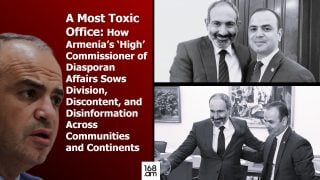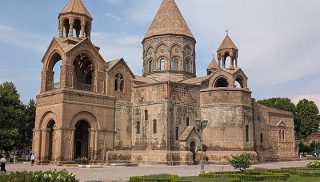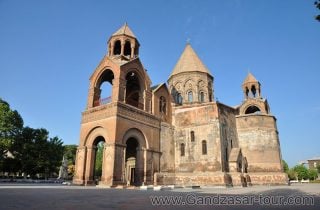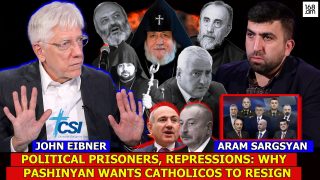
“Despite the quality of forthcoming elections the EU would like to sign an agreement with Armenia”
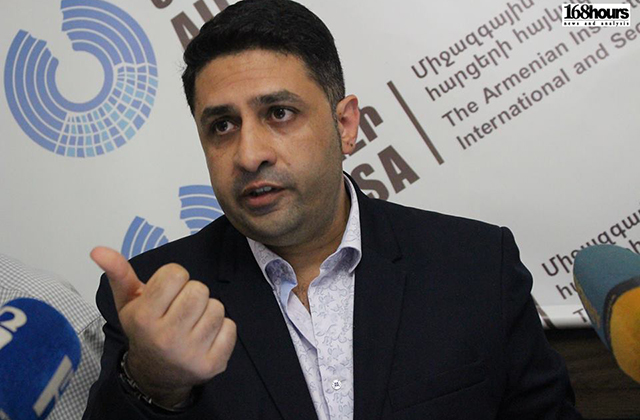
Interview with Gevorg Melikyan, associate fellow at the Armenian Institute of International and Security Affairs (AIISA).
These days visit of Christian Danielsson, Director General for Enlargement at the European Commission, to Armenia was recorded, and his meeting with Armenia’s president revealed that Serzh Sargsyan’s visit to Brussels is scheduled, which basically coincides with finalization of negotiations around Armenia-EU framework agreement. What do you think what importance will the visit have for Armenia-EU relations? What may the agenda be like?
Armenia doesn’t intend to refuse European vector, moreover, it attempts to keep it as much as possible, to deepen on account of restrictions it has as a result of comprising a part of Eurasian Economic Union (EEU). Armenia and the EU are interested to possibly strengthen those relations not allowing their intensity to weaken. However, the point is that there are preventions linked to signing the agreement, which doesn’t even have a name.
Basically, if in 2013 we were touching upon rapprochement, integration with the EU, currently we should realize that segmental relations and cooperation are meant, which globally may not have big influence neither on Armenia’s economy, nor on policy, i.e. Armenia was already deprived of its chance in 2013.
Currently it attempts to have a mosaic by fragments left from 2013, considering it a European vector. However, let me state, that vector is rather damaged, moreover, those gaps are difficult to completely fulfill. The Armenian side maximally attempts to do everything possible, basically, the European side as well, but there is an impression that hindrances are even more.
Do you mean that by this visit Armenia’s liability of signing this agreement and developing relations with the EU under these limitations will be reconfirmed?
Sure, I think Russia is also interested that Armenia cooperated with the EU, however, as much as necessary, that’s the point, i.e. currently restrictions are clarified, and red lines are drawn, it remains to bring everything to the technical shape, so that it was possible to sign that document. However, let me repeat once again that influence of the agreement to be signed will be incomparable with the document of 2013, from which it may be concluded that Armenia made a serious step backward regarding European integration.
Head of EU Delegation to Armenia recently makes frequent reflection to financial assistance allotted by the European side for Armenia’s electoral processes, i.e. the EU anticipates that democratic process will develop in Armenia. It may also be supposed that the agreement won’t be signed until elections, although the European side constantly insists that it doesn’t interfere and isn’t led by domestic policy. How will elections quality be reflected in deadlines of signing the agreement and generally in Armenia-EU relations?
The April elections of 2017 are really going to be a turning point, as actually we are electing a legislative body, which is going to be the most important circle for the upcoming years under the logic and scope of this Constitution. The EU or any other country can’t but take into consideration which powers will be leading, whether regime change will be recorded, whether there will be new powers or coalition government will be established or not.
It’s clear that here PM’s issue is dominant. PM’s person will be very important in foreign policy, as gradually president’s liabilities will reduce, and it will be important which political power will lead, how it’ll come to power, what complaints will follow elections, or as Serzh Sargsyan said, there will be a government of agreement.
All this is important, it’s also crucial which role Russia will have, as it’s more and more strengthening its presence in Armenia through Karen Karapetyan, in particular, by growth of Russian capital. All this will definitely have an impact on Armenia’s foreign policy vectors . Thus, the EU will wait for the processes to end, after which it’ll become clear what development the process will have. However, the European side would like to sign that document in any case to give legal grounding for its presence in Armenia.
However, I want to direct the arrows inward. We should realize what we want, what kind of a country we want to build, what vision Armenia has on its policy, economy, what kind of a society, strategy it wants to have. Uncertainty should be torn to bring in clarity.
By Araks Martirosyan







